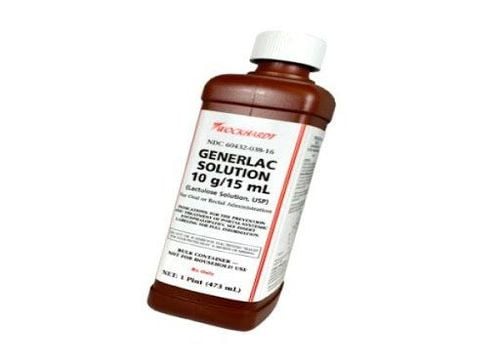This is an automatically translated article.
The article is professionally consulted by Doctor Vo Thi Thuy Trang - Gastrointestinal Endoscopy - Department of Medical Examination & Internal Medicine - Vinmec Da Nang International Hospital.After being infected with the hepatitis B virus, the body responds with immunity (antibodies) produced. If the amount of antibodies (anti-virus) is high enough to destroy the virus, the disease will go away on its own. In contrast, the amount of antibodies is not enough to kill the virus, causing the amount of virus to increase, which will turn the acute hepatitis B status of the infected person into a chronic one.
1. How dangerous is hepatitis B?
Hepatitis B is considered a "silent killer" because there are often no obvious symptoms. Evidence is that many people who have liver function tests still have normal liver enzymes while having a chronic viral infection. Most acute hepatitis B turns chronic if the immune system fails to fight the virus. After all, hepatitis B patients who do not abstain, do not take care of their health will become a high risk factor for other serious liver diseases such as hepatitis, cirrhosis, even liver cancer. When there are clinical manifestations, the disease is often at a late stage and difficult to cure.Hepatitis B is dangerous because it is the main cause of liver cancer, which causes the second highest number of deaths of all cancers. Hepatitis B is responsible for 37% of liver cancer deaths worldwide. People with chronic hepatitis B are 100 times more likely to develop liver cancer than the general population. People who get hepatitis B from their mothers at birth or at a young age can develop cancer very early, even in adolescence. Therefore, these people need to have a sense of periodic screening to detect and treat the disease effectively at an early stage.
2. Progression of acute hepatitis B
Hepatitis B virus after entering the body will multiply or decrease depending on many factors (time of disease detection, body's immune response,...). From there, make the condition worse or improve. Specifically, the prognosis is as follows:Progression to fulminant hepatitis and death due to liver failure: Causes severe liver cell damage, leading to acute liver failure, even death if not treated promptly. . Cases of hepatitis B progressing to fulminant hepatitis are rare, occurring in only a small percentage (1%). Recovering from infection and creating protective immunity: The body clears the hepatitis B virus after a few months and creates lifelong protective immunity. Currently, there is no cure for acute hepatitis B, only supportive treatment. Progression to chronic hepatitis B: Hepatitis B turns to chronic hepatitis B when the body does not clear the virus that causes the disease. Currently, there are antiviral drugs that effectively treat chronic hepatitis B. However, because the disease is chronic, patients still need regular follow-up and screening for liver cancer to detect liver damage early or signs of worsening disease. This is very important because without proper treatment and monitoring, about 1 in 4 people with chronic hepatitis B will die from cirrhosis, liver cancer or liver failure.

3. Subjects prone to progression of acute hepatitis B to chronic
Age when infected with hepatitis B virus is an important factor affecting whether the disease turns into chronic hepatitis or not. Infants and young children infected with the hepatitis B virus have the highest risk of developing chronic hepatitis B. Without vaccination and preventive treatment, over 90% of babies born to mothers infected with hepatitis B will develop chronic hepatitis B. For adults with hepatitis B virus, the rate of progression to chronic hepatitis B is about 6 - 10%.4. Things to do to protect the health of people with hepatitis B
Hepatitis A Vaccine: Hepatitis A is an infection of the liver caused by another virus. Hepatitis A is transmitted orally through contaminated food or water. People with hepatitis B also need to be vaccinated against hepatitis A to reduce the risk of further liver damage. Limit alcohol consumption and liver harmful substances: Drinking alcohol is toxic to the liver and can make the disease progress quickly to cirrhosis or liver failure. At the same time, patients should also talk to their doctor about medications they have been taking because some drugs can be harmful to the liver. Prevention of transmission to others: When there is a wound, it needs to be properly bandaged, use a condom when having sex, do not share personal items that can have blood such as razors, toothbrushes ... For people with diabetes, should clean and maintain blood glucose monitoring devices that may have blood on them, do not let others touch. Patients are also not allowed to donate blood, organs, tissues or sperm.5. Tests commonly used in monitoring liver function
Liver enzyme tests (ALT): Tests done every 6 months. Elevated ALT is an indicator of liver damage. If liver enzymes are normal, no further tests may be needed, unless you have cirrhosis or are taking chemotherapy for cancer. Viral load test by PCR (HBV DNA test): The test is done to measure the viral load in the blood. If the patient has high ALT, viral load testing will help confirm whether the liver damage is caused by the hepatitis B virus. HBeAg and anti-HBe : Testing for HBeAg should be done after results confirm chronic hepatitis B. HBeAg is a marker of viral activity and indirectly reflects viral load results in the blood. If HBeAg(+), retest every year to monitor viral activity. If HBeAg changes from + to - and the presence of anti-HBe is a sign of good treatment response. However, the presence of anti-HBe does not mean that the patient is completely cured and does not need to continue treatment. because some patients carry the mutated hepatitis B virus that does not produce HBeAg. Platelet and Albumin Counts: A low platelet count (less than 150,000 cells/mm3) combined with a low albumin level (<=3.5 gm/dl) is suggestive of cirrhosis and impaired liver function. liver. Liver biopsy: An invasive procedure should not be widely indicated. In certain cases, liver biopsy is performed to make treatment decisions in patients with mild or intermittent elevations of liver enzymes. If there is sufficient evidence to confirm the disease, the indication for liver biopsy is not made.
The hepatobiliary screening package helps customers:
Assess the liver's ability to work through liver enzyme tests; Evaluation of bile function; vascular nutrition; Early screening for liver cancer; Performing tests such as Total blood cell analysis, blood clotting ability, screening for hepatitis B, C; Assessment of hepatobiliary status through ultrasound images and diseases that have the potential to affect liver disease/exacerbation of liver disease; In-depth analysis of parameters to evaluate hepatobiliary function through laboratory and subclinical tests; the risk of affecting the liver and early screening for hepatobiliary cancer. With nearly 20 years of working at Da Nang General Hospital in the field of gastroenterology - hepatobiliary disease, every year, Doctor Vo Thi Thuy Trang participates in endoscopy more than 1500 cases including: endoscopic diagnosis of stomach diseases stomach, colon such as: detecting inflammation, ulcers, polyps, cancer, finding HP bacteria, detecting early cancer of the digestive tract...; Endoscopic treatment such as: Hemostasis in gastrointestinal bleeding, esophageal varices ligation in cirrhosis, endoscopic gastrointestinal polypectomy...
Please dial HOTLINE for more information or register for an appointment HERE. Download MyVinmec app to make appointments faster and to manage your bookings easily.














